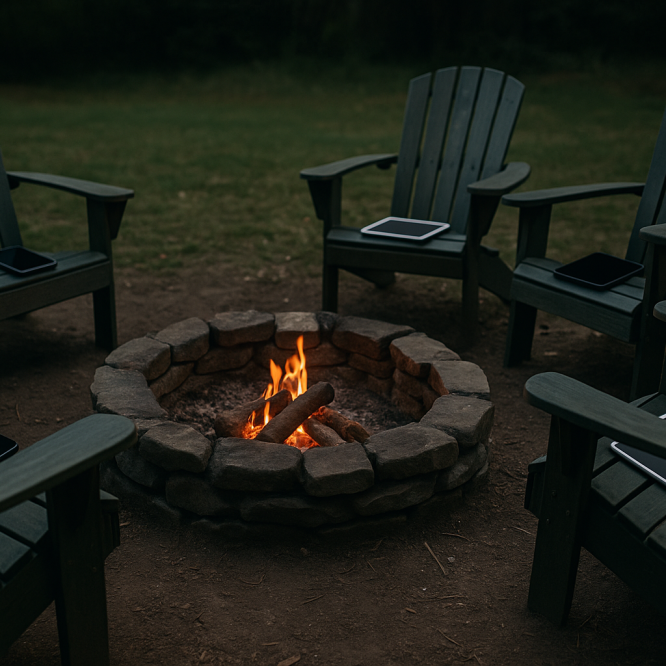Do I remember life before the internet?
Yeah.
I remember when people didn’t pretend to be friends through pixels and emojis—they actually showed up. They called. They knocked on doors. They remembered birthdays without algorithms. Connection took effort. And somehow… it meant more.
Now we have the sum total of human knowledge in our pockets, and we use it to Google “can raccoons be domesticated,” debate whether a hot dog is a sandwich (it’s a taco—stay focused), and scroll through our ex’s vacation photos like it’s a sport.
We’ve built glowing rectangles capable of storing the collected genius of Aristotle, da Vinci, and Ada Lovelace—and we mostly use them to watch raccoons wash cotton candy and ask the void, “Can I sell my soul on eBay?”
We are miracles of evolution.
And carbon-based disappointments.
Look, I’m not saying the internet is all bad.
It’s brilliant. It’s wild. It’s connective in ways that once belonged to science fiction.
But we’ve traded presence for performance.
And replaced commitment with commentary.
We forgot that intimacy isn’t measured in DMs and likes.
It’s in the silence you don’t need to fill.
The late-night conversations without backspace.
The vulnerability of not knowing—and learning together, not just from Google.
Of course, the internet does more than break our attention spans and turn us into thumb-scrolling zombies. It’s also become a kind of digital therapist’s couch. For better and worse.
Research shows that for many, the internet is a lifeline—a way to access mental health support, connect with others, and manage emotional well-being (Joshi et al., 2023, Journal of Digital Mental Health). Online therapy, wellness apps, even psychoeducational YouTube channels—there’s real power here.
But it’s not all self-care and serenity.
Adolescents are self-diagnosing on TikTok. People are mistaking social media echo chambers for medical insight and identity exploration. And more than a few of us are stuck in a doomscrolling loop that leaves us anxious, sleepless, and vaguely jealous of people with matching aesthetic morning routines (Affandi, 2024, Modern Psychology Review).
Even doctors have had to adjust. Patients now show up with search histories longer than their symptom list. The line between informed and overwhelmed is blurry. Sometimes helpful. Sometimes hilariously wrong (Dervaux, 2014, The Atlantic).
So yes, I remember life before the internet.
It was messy. Boring, sometimes.
But it was real.
And maybe… just maybe… we could use a little more of that again.
Now if you’ll excuse me, I need to Google whether squirrels hold grudges.
(Because I swear that one outside my window just flipped me off.)
